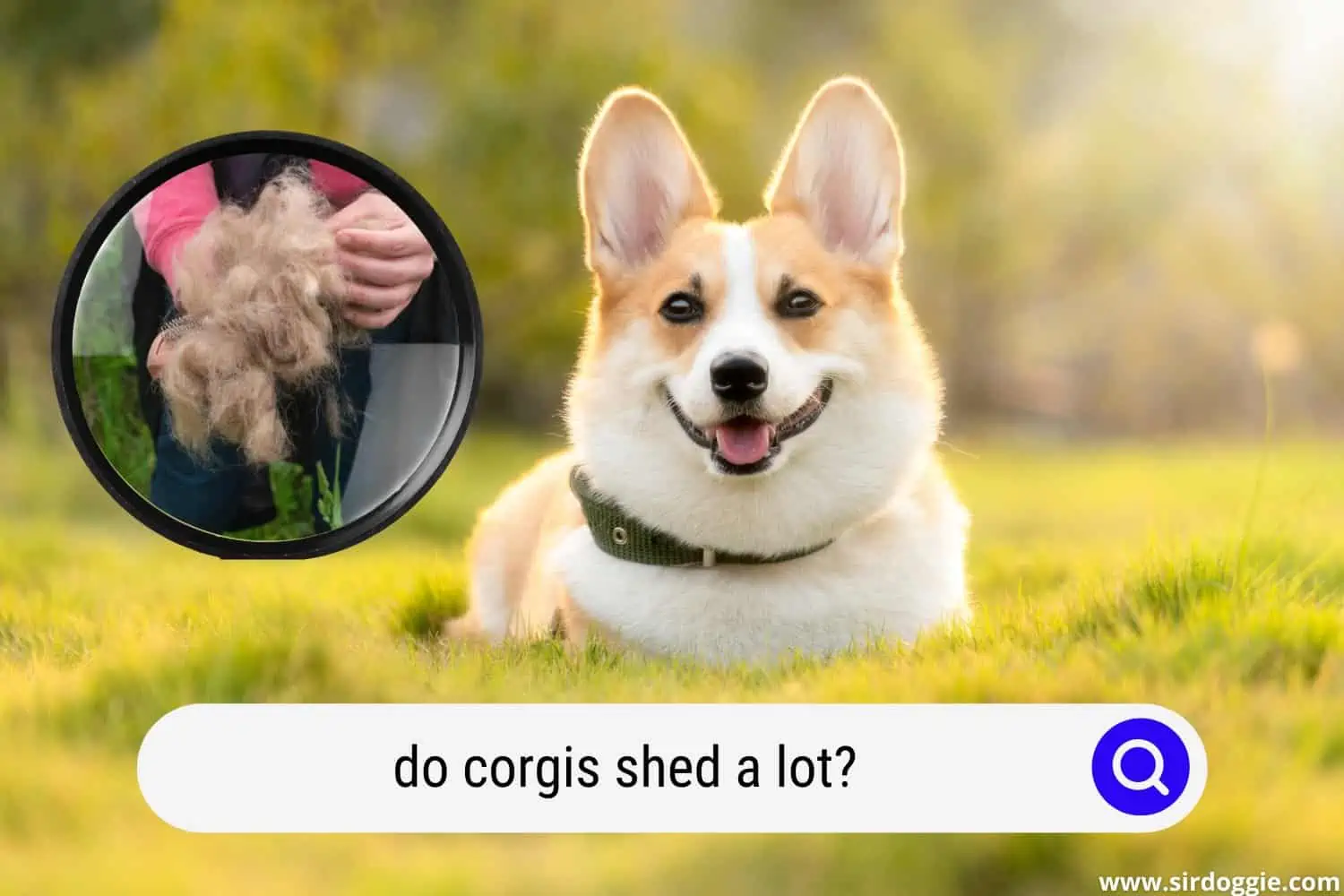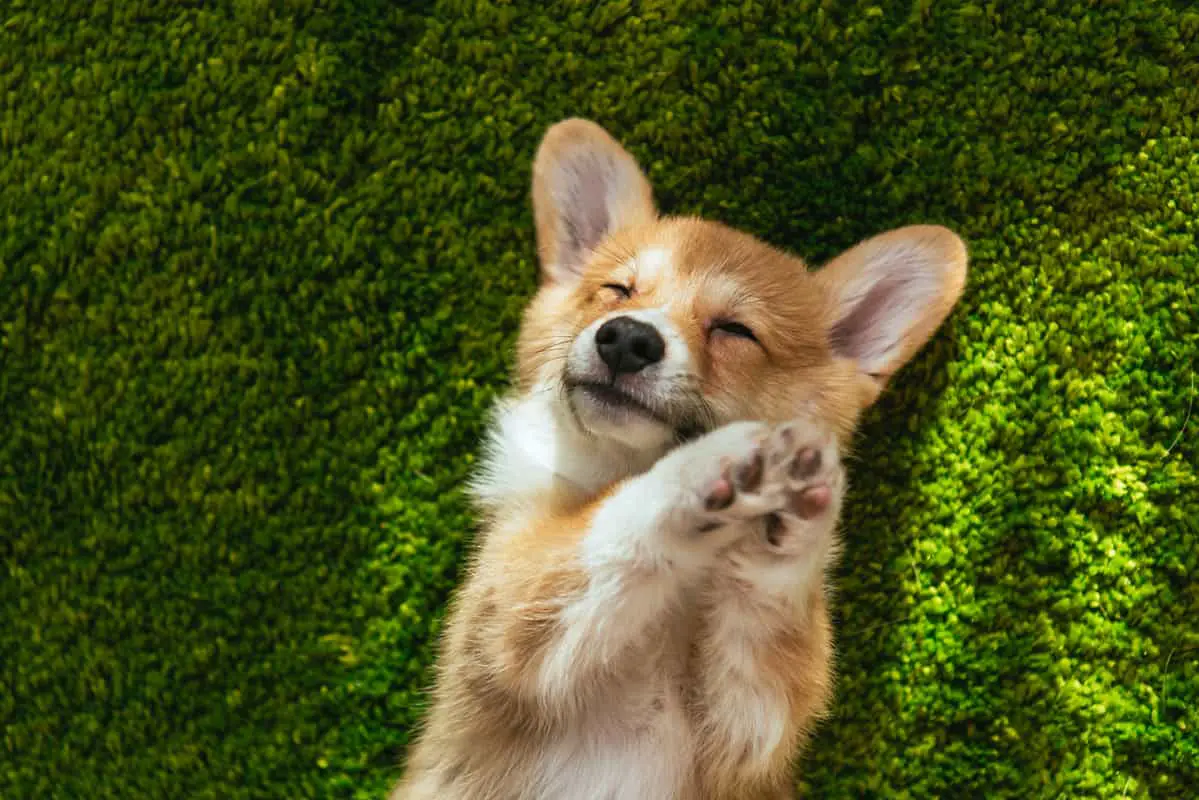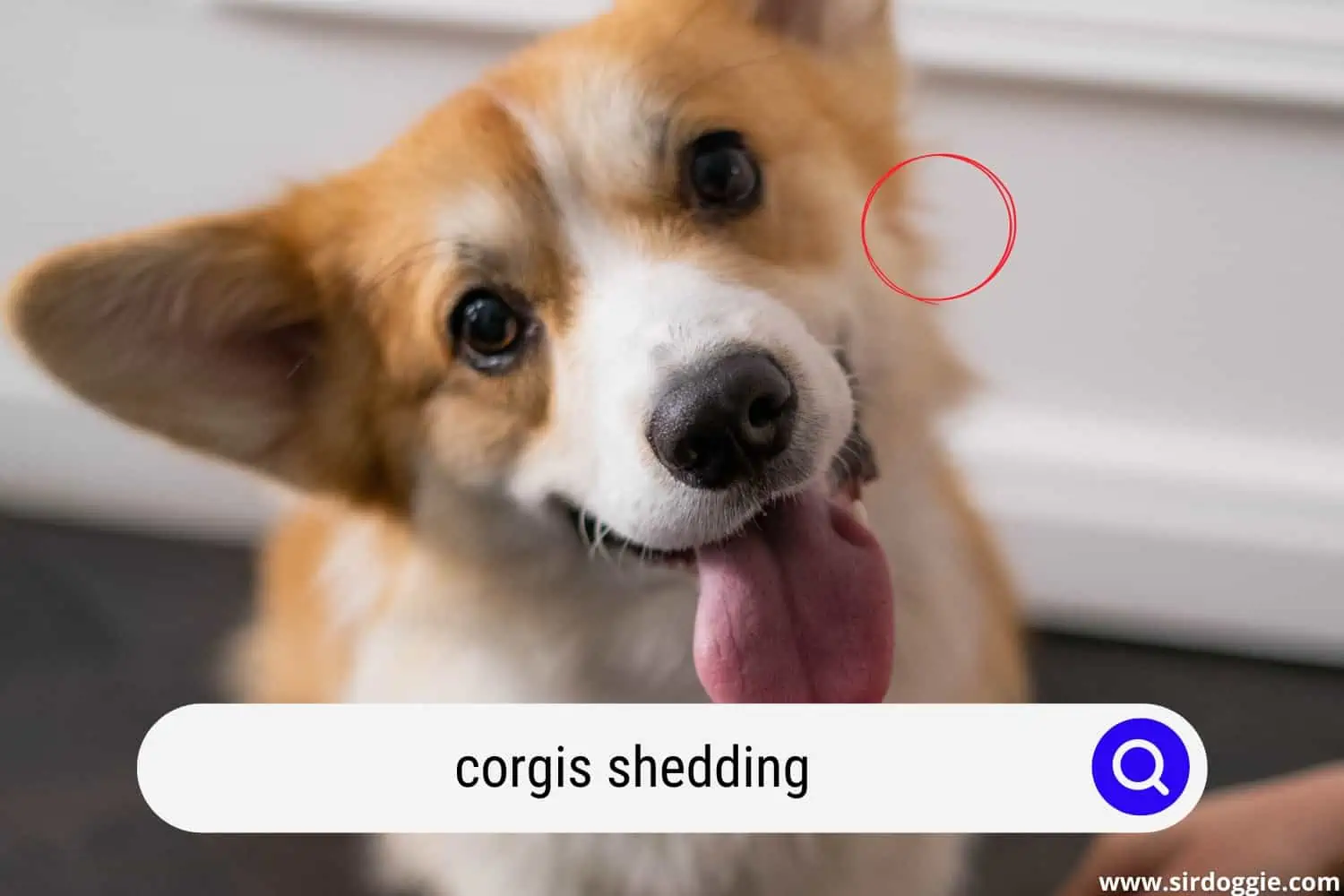Do Corgis Shed A Lot? What You NEED To Know
Thinking of adopting a Corgi? If you are going to share your home with a Corgi, you will need to deal with some level of dog hair on your clothes and in your home. Corgis shed continuously year-round, with heavier shedding at least twice a year.

But you don’t have to determine which type of dog you bring home based purely on whether they shed or not. There are a lot of proactive steps pet parents can take to ensure their dog’s shedding doesn’t cause an issue.
Plus, with Corgi’s ability to fit into almost any household, you may be missing out on one of the best dogs out there!
If you want to understand the Corgi breed better and to get some tips on how you can best deal with their shedding, then read on.
Related Reading: Scientific Reasons Dogs Are Cute [IT’S A FACT!]
At What Age Does Corgi Start Shedding
Shedding is natural and all dogs do so. This is due to the essential growth and regeneration of hair/fur. Corgis are notoriously high shedders. All Corgi pups usually start shedding between 8-13 months.
The coat sheds out every day, and more in the shedding season when the Corgis blow their coat.
Reasons Which Affect Corgi Shedding
Although this breeder is a heavy shedder, extreme heavy shedding becomes a cause of concern. The abnormal heavy shedding can be a sign of an underlying health issue.
Let’s have a look at the various reasons which affect Corgi shedding:
Change of season
Corgi’s natural hair growth cycle adapts to varied seasons. These dogs blow their coat twice a year. This heavy shedding is during weather changes, such as spring or autumn. This heavy shedding season lasts for 2-4 weeks.
Poor nutrition
Poor nutrition is a major culprit when it comes to excessive shedding in Corgis. If these dogs are not given a healthy diet with complete nutrition, their coat appears unhealthy and they may experience excessive shedding.
Poor grooming
Corgis are not brush-and-go dogs. They need regular brushing, bathing, and other grooming to keep their coat healthy. Poor grooming results in excessive shedding.
If you are not brushing your Corgi frequently enough or using incorrect brushes, this may damage your coat. Too much or very little bathing can cause Corgis to shed their coats.
Using the wrong shampoo can also contribute to Corgi shedding.
Hormonal changes
Hormonal swings affect how your Corgi sheds and you might not be able to control it. Hormonal imbalance may occur due to pregnancy, recent spaying or neutering, or a female going into heat.
Stress
Excessive shedding in Corgis may be a sign of stress. They may get stressed because of loud noises, environmental change, separation anxiety, or introducing new pets into your home.
Ticks and fleas
Fleas, ticks, or parasites may also result in noticeably high Corgi shedding. This makes their skin itchy and uncomfortable.
If you observe that your Corgi’s shedding has become unusually heavy, it is time to take him for a check-up to a vet.

How To Deal With Corgi Shedding
As a Corgi owner, you need to understand that their coats will need routine maintenance and grooming to ensure the health of Corgi’s fur. Routine maintenance will help to remove loose and dead hair from the coat.
Here is what you can do to manage Corgi Shedding:
Brushing
Daily brushing is essential to keep a Corgi’s shedding in check. This will help to remove dead hair and prevent mats or tangles. It will also save you from loose hair flying around your house.
Regular brushing will also make their coat look shinier and cleaner.
Thoroughly brush your Corgi’s whole coat with the correct brush to remove all the dead hair gathered under the topcoat. You will need to brush from the root of the hair/fur to its tip or end.
Invest in grooming tools and cleaning supplies
Corgi owners should consider investing in grooming tools and cleaning supplies. Arming yourself with the right grooming tools will help you keep your Corgi’s coat healthy.
You can also use a de-shedding tool built for dog breeds with double coats like Corgi. They are specially designed to reach the undercoat of the Corgi through the topcoat.
Invest in a vacuum cleaner for picking up the dog’s hair that is stuck to your furnishings and from all over your floor.
Regular baths
Many people believe that regular bathing also helps control heavy shedding. This is a cost-efficient way that can help to loosen the dead hair.
It is recommended to bathe your Corgi no more than once a week as over-bathing is not recommended for these dogs.
You may want to consider getting some dog-specific shampoo, some dog clippers, and even a dog dryer.
These can make at-home grooming a breeze and will end up saving a lot of money spent on professional grooming.
When your Corgi is blowing his coat and going through the shedding season, you may consider bathing more frequently.
Try to always test the temperature of the water before putting your Corgi in. When bathing them, use a good quality and mild pH-balanced shampoo and conditioner.
Healthy diet
Corgis should be fed a healthy balanced diet and high-quality dog food. You must ensure that your Corgi gets good nutrition with a balance of Protein and Essential Fatty Acids.
It is also important to ensure that this food is appropriate for the dog’s age range. This will keep your dog’s coat in good condition.
If you observe a dull coat and abnormal shedding, try including fish oil and Omega 3 into your Corgi’s diet. These supplements promote stronger hair follicles and skin elasticity and are great for a healthy coat.
Can I Shave My Corgi?
It’s never recommended to shave a Corgi. Shaving a Corgi during the summer season has become a trend in recent years. Your dog’s coat is his natural insulating layer.
If you shave your double-coated Corgi, you are removing his natural protective layers and this can be damaging for your dog. Here are some reasons why you shouldn’t shave your Corgi:
- They won’t be able to regulate his body temperature
- Their skin would be exposed to the sun’s harmful UV rays
- Shaving puts your dog at a higher risk for heatstroke or they may suffer sunburn
- It can cause the hair to grow back improperly
- It may damage their hair follicles and lead to permanent bald patches on your dog
Are Corgis Hypoallergenic Dogs?
The term hypoallergenic is used for non-shedding breeds. Corgis are heavy shedders and are not hypoallergenic dogs.
If you are allergic to dog hair and dog dander, then Corgis are not the right breed for you.
Corgi Breed Information
Corgi is a beloved dog with a Royal history. They have remained famous with royals for almost seventy years. They were originally bred to herd cattle, sheep, and horses.
The small, cute, and compact Corgis are one of the world’s most popular herding breeds. The American Kennel Club (AKC) rated the Corgis as the 10th most popular breed in 2019.
There are two types of Corgis including the Pembroke Welsh Corgi and the Cardigan Welsh Corgi. The Pembroke Corgi has a double coat, with a thick undercoat and a longer overcoat.
The Cardigan Welsh Corgi has a wiry, medium-length coat that is easy to brush. Both types of Corgis are heavy shedders.
The Corgi has a thick and weatherproof double coat. He has a soft and light undercoat covered by a coarse outer coat. The coat colours can be red, sable, fawn, black, and tan, with or without white markings.

Conclusion
Corgi’s double coat sheds out daily, and more in the shedding season. But if you’re not allergic, Corgis are wonderful dogs. They are loving, affectionate, and energetic pooch who will always keep you entertained with their bright personality.
If your heart is set on adopting a Corgi, you need to have the time and patience for regular grooming.
Maintaining a Corgi won’t be tough if you have a healthy diet and daily brushing to your dog and adapt yourself and your home to the hair.

Family Dog Expert Author
Hi there! I’m Stuart, a devoted dog lover and family dog expert with over a decade of experience working with our furry companions. My passion for dogs drives me to share my knowledge and expertise, helping families build strong, loving bonds with their four-legged friends. When I’m not writing for SirDoggie, you’ll find me hiking, playing with my beautiful dog, or studying music.